What Switzerland can do about the US-China rivalry
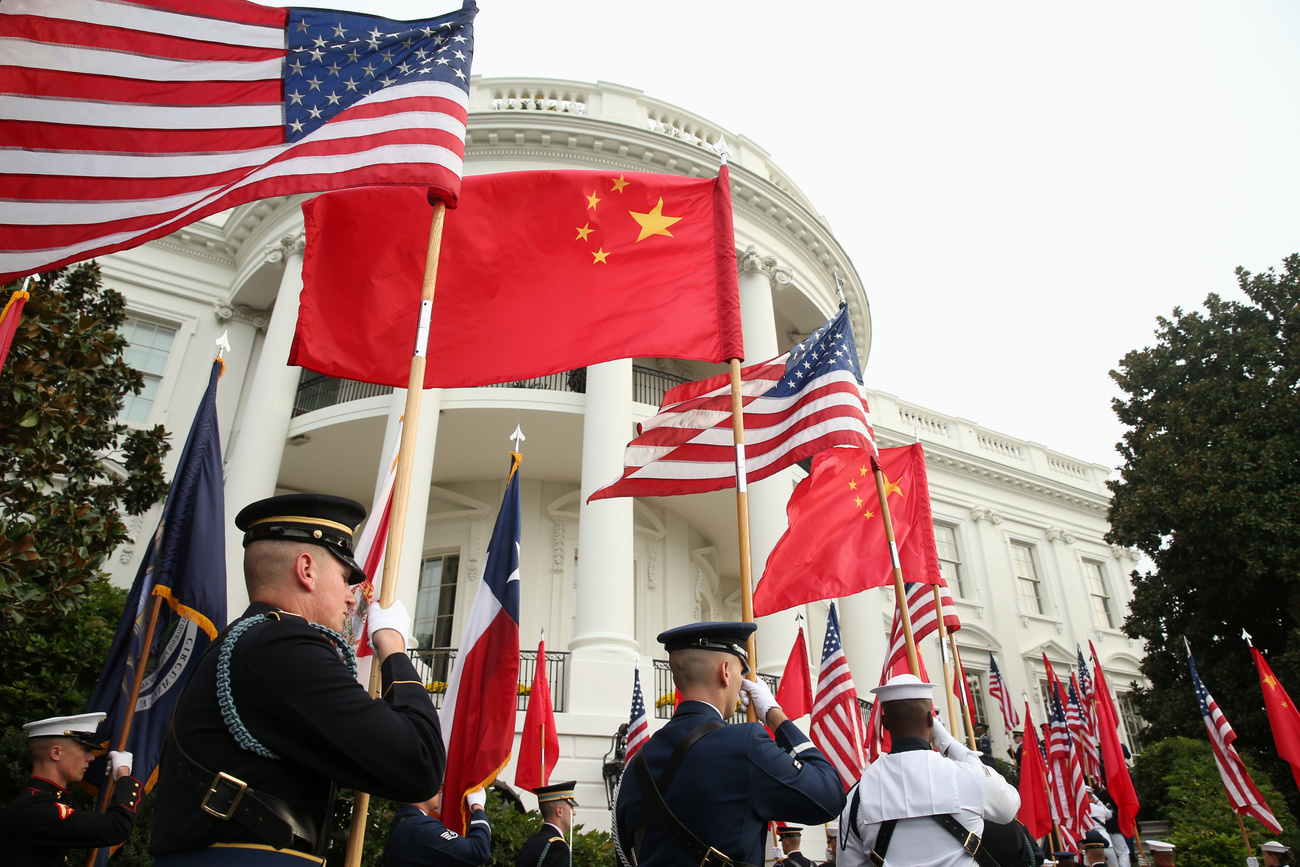
This spring, Switzerland will unveil its first foreign policy strategy on China, its third-largest trading partner. It will come at a time when the United States is working out its own plan for dealing with a state the new president has called America’s “most serious competitor”.
A concerted strategy for managing relations with the Asian power has long been a request of Swiss parliamentarians. But it is only in the last couple of years that the government set out to draft one, in part to improve policy coordination between various federal departments and the cantons.
One issue the strategy is likely to address is the competition between the US and China, which the Swiss intelligence agency has said could see the two powers creating spheres of strategic influence.
Gone are the days when the US and other countries, including Switzerland, believed that China would accommodate its system to that of the West as it became more prosperous, said Ian Bond, a former British diplomat. The US now sees China as a strategic rival and there is bipartisan agreement that China’s economic rise and military ambitions pose a threat to American interests.
“This is the rivalry that will shape the next decades,” said Bond, head of foreign policy at the Centre for European Reform, a pro-European think tank.
It is also one that poses a significant challenge to countries on the sidelines – like Switzerland – that want to avoid getting caught in the middle but still be on good terms with both states.
Joe Biden has said that his country’s approach to a more assertive China will be a mix of cooperation, “when it’s in America’s interest”, and competition, “by working with our allies and partners”. But although his Chinese counterpart, Xi Jinping, has warned against building a coalition to pressure the country, China itself is seeking to bring countries into its orbit.
“In this new world in which there are such tense relations between two superpowers, which direction will small countries take?” said Simona Grano, a University of Zurich lecturer in Greater China Studies. “Will they choose sides, stay neutral, or bandwagon with one or the other superpower?”
Economic hopes and fears
For the Swiss, one chief consideration when navigating this rivalry will be economic.
“First of all, the focus will be on maintaining good economic relations, which is one of the most important duties of any government,” said Grano.
The US may be Switzerland’s second-biggest trading partner (after the European Union), but it is access to China’s vast market that no country wants to jeopardise.
Trade in goods between China and Switzerland has expanded rapidly in recent years. The two have had a free trade deal in place since 2014, and in 2019 they signed a memorandum of understanding to intensify cooperation on trade, investment and financing projects tied to the Belt and Road Initiative (BRI), an extensive Chinese programme to build land and maritime infrastructure in third countries.
Indeed the Swiss want to attract more Chinese foreign direct investment (FDI), which is modest (CHF14.8 billion, or $16 billion, in 2019) compared to Swiss investments in China (CHF22.5 billion). But like in many other states, there is growing concern about protecting intellectual property from foreign powers.
Following the 2016 takeover of the Swiss agrochemical company Syngenta by state-owned ChemChina, the Swiss parliament approved a proposal in 2019 that forces the government to establish a legal basis for monitoring FDI and for creating a control authority.

More
Minister warns of ‘strategic’ Chinese takeovers of Swiss firms
Damian Müller, a Radical-Liberal senator who chairs the foreign affairs committee, believes that on this issue, Switzerland can find common ground with the EU, where Chinese companies have bought up numerous hi-tech firms and invested in key infrastructure.
“We are in a free market, so of course we cannot stop a company takeover, but we have to find a way for the whole continent to get China to abide by the rules,” he said.
In 2019 the EU recognised China as a “systemic rival” and an economic competitor. An investment screening regulation to “protect EU strategic interest” came into force last year.
Common values
Creating a coalition of allies to confront China on issues like unfair economic practices – which the Biden administration is advocating – makes sense for Switzerland not only because it will be more effective than acting alone, according to Grano. It could also spare a small country suffering any costly retaliation from China, as was the case recently for Sweden and Australia.
“This is a dangerous game to play with China because it can react aggressively to send a message to other states as well,” she said.

More
Newsletters
But not all Europeans are prepared to work together. Some cash-strapped countries have embraced Chinese investments, including the BRI. China has exploited other states’ economic dependence to help push its own interests in multilateral forums. In 2017 Greece shocked its neighbours by blocking an EU statement at the UN condemning China’s human rights record.
“The Chinese are quite strategic for how they offer aid to countries,” said Bond. “We need to change the incentives for China to work more within existing frameworks.”
Former US president Donald Trump’s antagonism toward multilateral institutions allowed the Chinese to assert their global leadership credentials and shape the United Nations agenda “in ways that do not coincide with EU priorities or values,” Bond and his colleagues wrote in a 2020 policy brief.
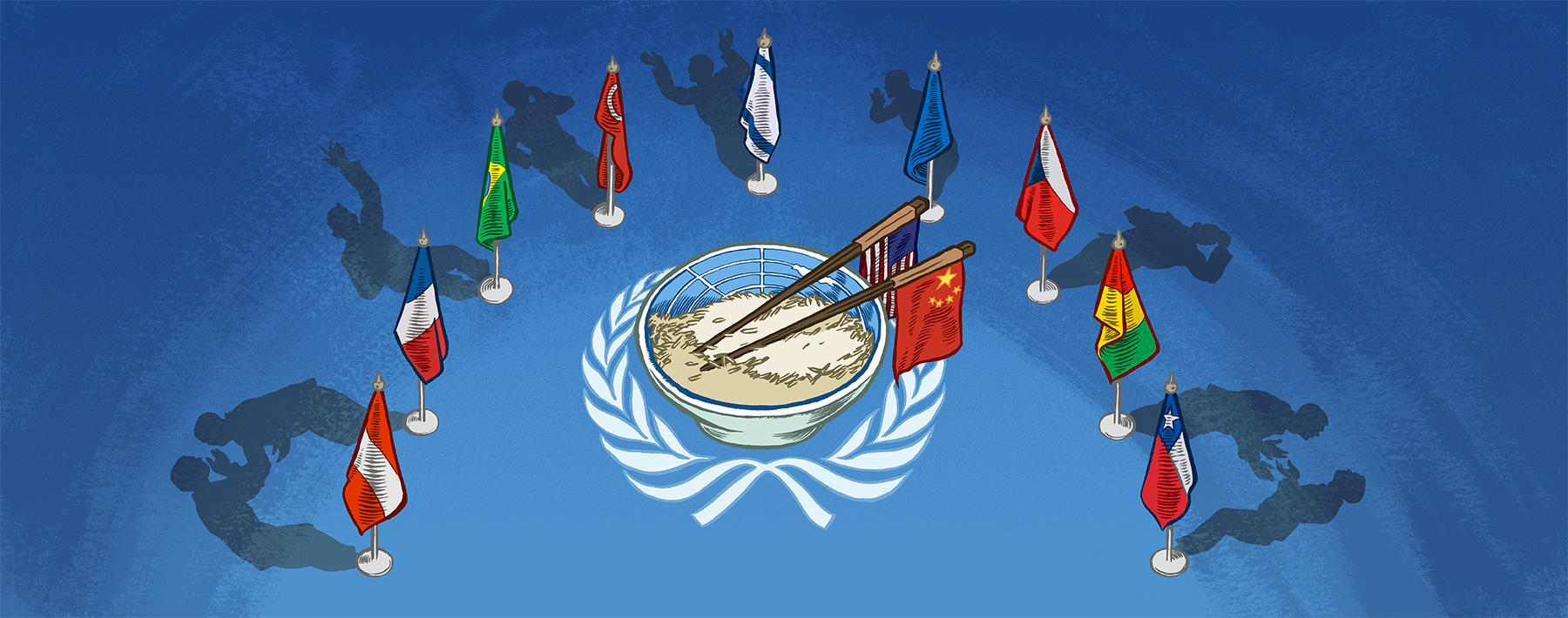
More
China flexes its muscles at the United Nations
Grano calls China’s efforts “a subversion of the current multilateral order”, an alternative system “with parallel diplomatic, economic, cultural and security ‘presences’ around the world.”
Despite strains in transatlantic relations and the recent conclusion of an investment agreement between China and the EU that irked the White House, “there is a very clear values gap between the US and Europe on one side and China on the other,” said Bond.
On the basis of shared democratic values and interests, countries like Switzerland could cooperate on issues such as intellectual property, cybersecurity and human rights, to put pressure on China, he added.
A question of survival
Public opinion could also play a role in how countries react to the US-China rivalry. Recent events, such as reports of systematic human rights abuses against the Uighur minority, the arrests of pro-democracy activists in Hong Kong, and Chinese evasiveness about the origins of the coronavirus pandemic, have cast China in a more negative light in the West.
But balancing economic interests with calls to take a stand against rights abuses will be difficult for Switzerland, where political parties must govern by consensus, yet disagree on what approach to take, said Grano. She expects the new China strategy to take a largely middle road, along the lines of a paper published in February by the Radical-Liberals, the party of the country’s foreign affairs minister, Ignazio Cassis.
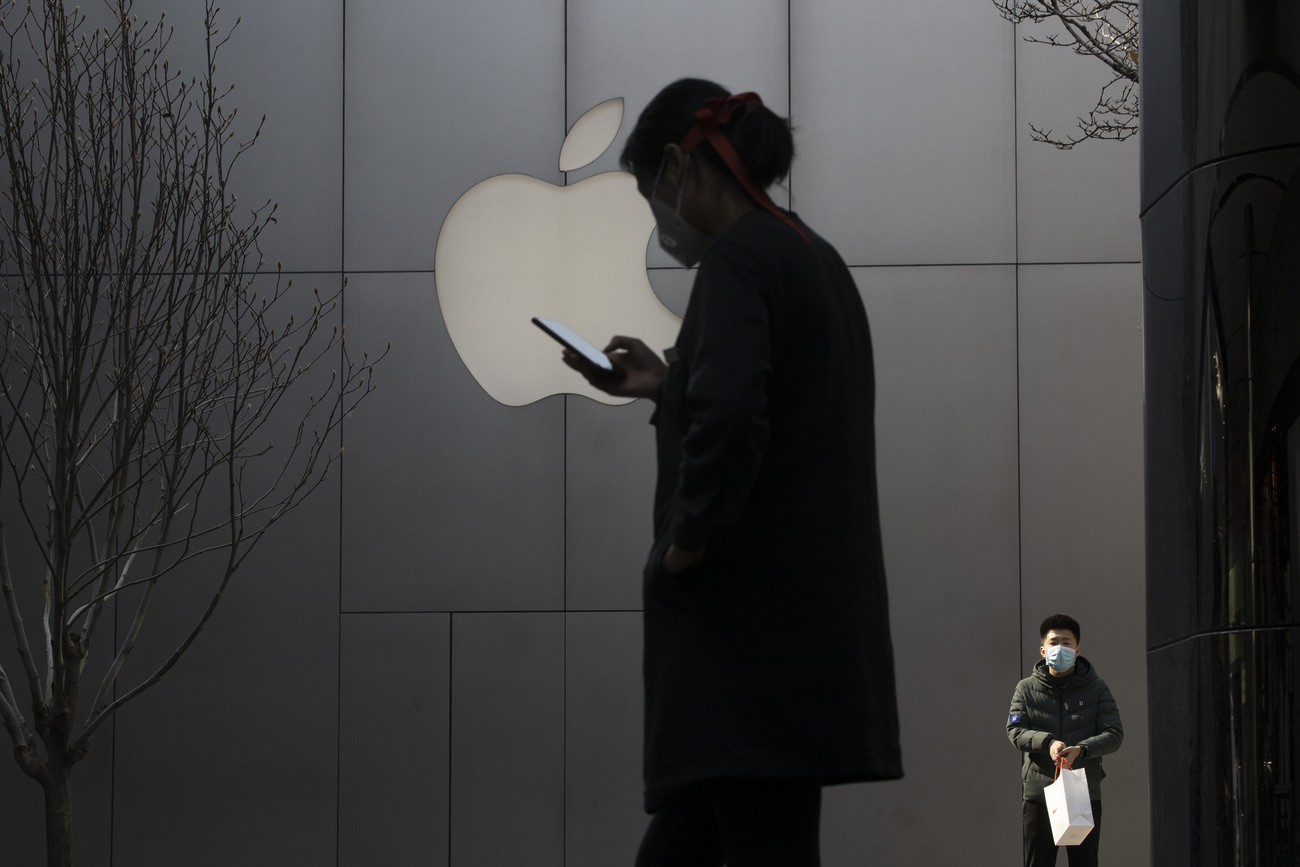
More
Rights activists want Swiss-Chinese trade deal to be overhauled
The centre-right party’s text shows that Switzerland wants to keep all options open. It states that although Switzerland should coordinate its China policy with that of the EU, in principle this policy should be independent, as it’s “the only way for the country to exploit the advantages of neutrality and assume its classic role of mediator”.
Müller summed up the dilemma: “We have good relations with the US, and good relations with China. We have to be careful that we’re not seen to be working with one country or to have stopped working with another.”
“It’s only with constant dialogue and clear rules of conduct that we’ll be able to work together,” the senator added.
Overtime the pressure to align itself with one or the other may prove untenable, but for now the country’s objective is to avoid getting cornered in an ideological power struggle.
“Switzerland wants to appear as not ‘taking sides’ and [at the same time] it wants to get the most out of [both relationships],” said Grano. “In the end Switzerland is trying to survive.”

In compliance with the JTI standards
More: SWI swissinfo.ch certified by the Journalism Trust Initiative









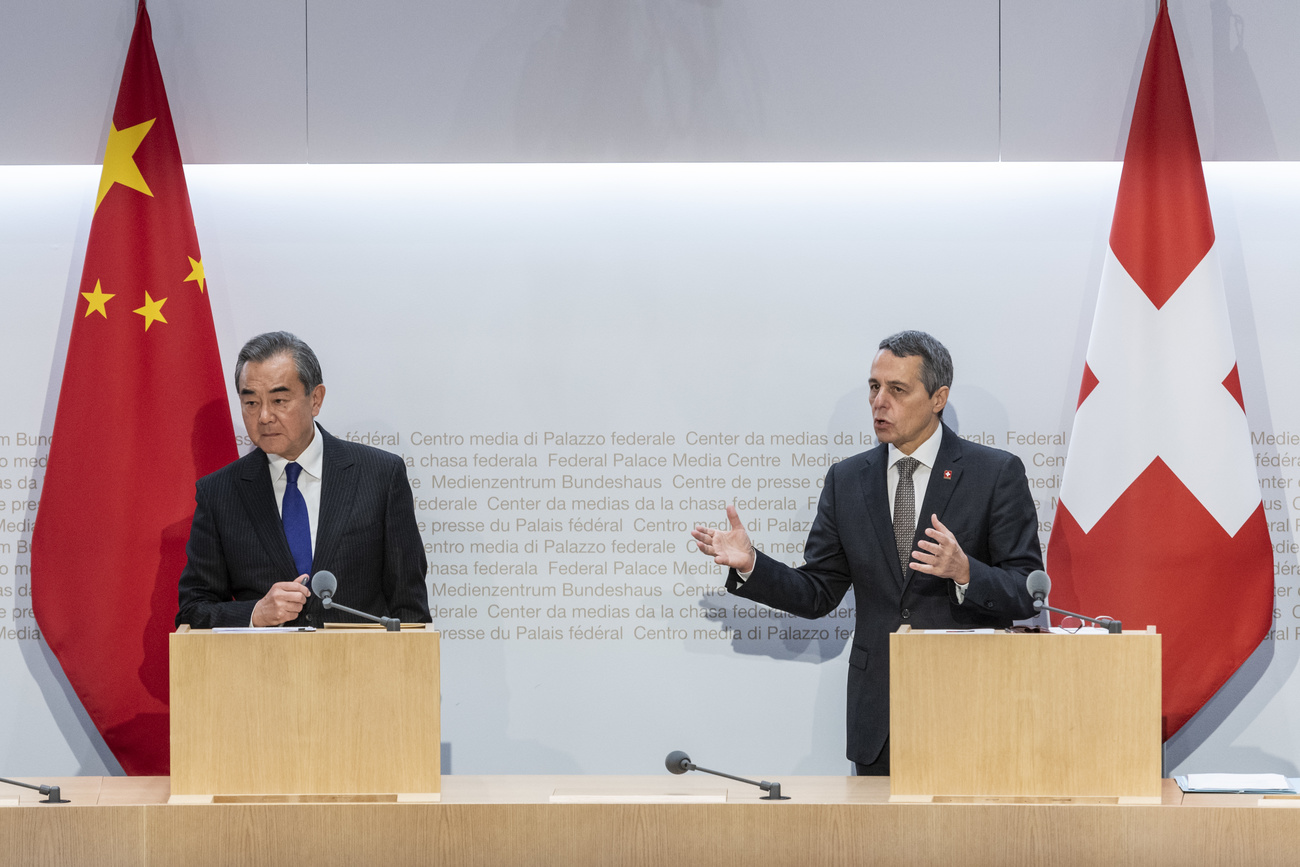
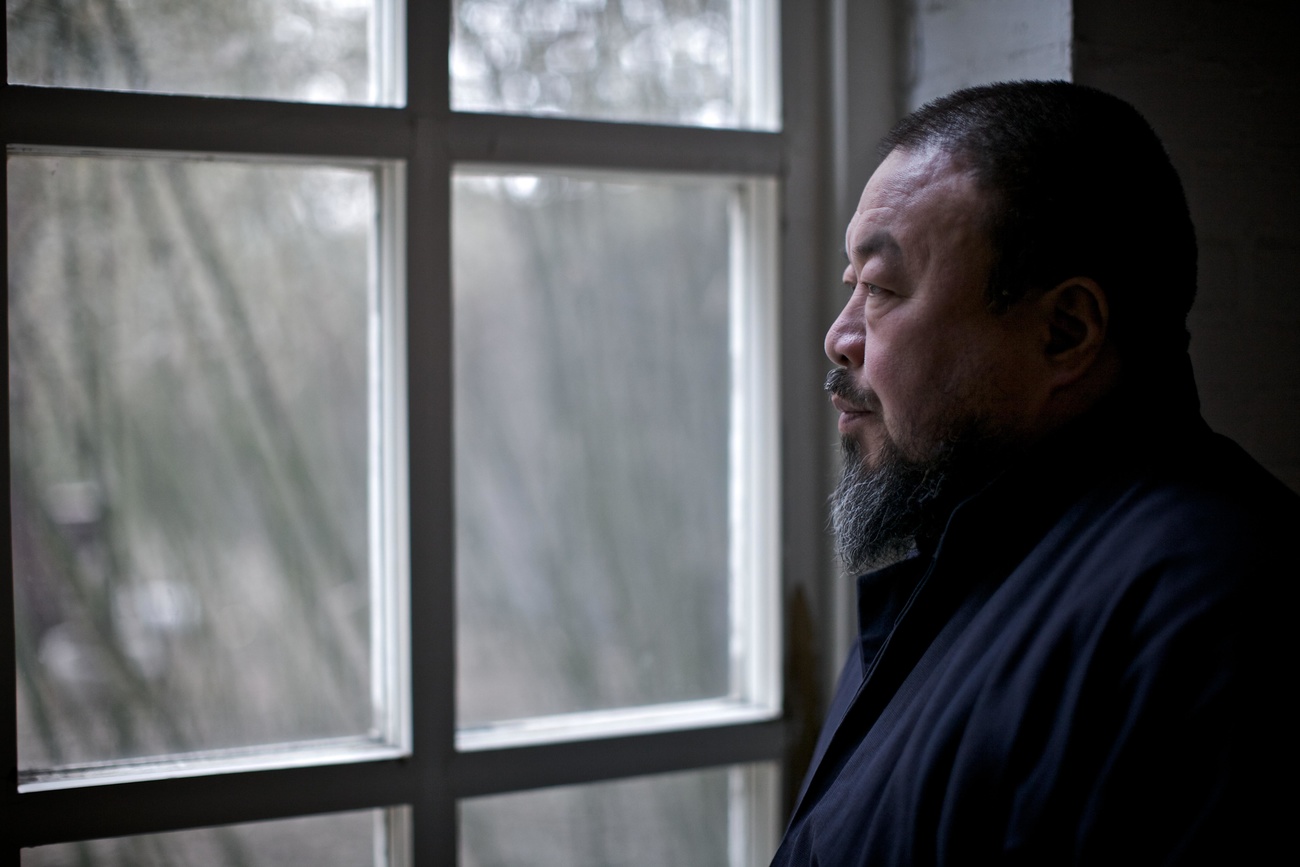


Join the conversation!